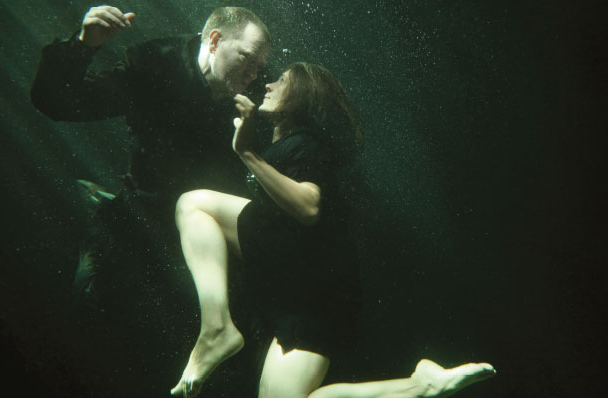
Michael Keegan-Dolan’s modern interpretation of the 19th-century ballet, Swan Lake, tells the story of Jimmy O’Reilly, a Prince Siegfried-like character and 36-year-old bachelor who lives with his ageing mother. Drawing on elements of Tchaikovsky’s original ballet, Keegan-Dolan offers a refreshing take on the classic tale, with a distinctly Irish twist.
While the show is comedic, Swan Lake/Loch na hEala touches on issues such as mental health and sexual assault. With a main element of the piece being O’Reilly’s depression following the death of his father and continuing pressure from his mother to wed, Swan Lake/Loch na hEala is dark, yet it masterfully uses comedy to offset the serious nature of the themes in this retelling.
The music, which was written by Slow Moving Clouds, a Dublin-based band, drew inspiration from traditional Irish music and Nordic folk music, creating an awe-inspiring and eclectic combination that compliments the tone of the adaption beautifully. The choreography flowed perfectly with the score, with the band explaining in the Q&A session that followed that “a lot of the music evolved with the dancer’s inspiration” and that the songs were “all done on feel”. Improvisation is recurring in Swan Lake/Loch na hEala, with the entire adaption feeling raw and emotive.
The closing scene was a highlight of the show. It was wonderfully whimsical, and I couldn’t help but smile watching it. Cast members danced to Slow Moving Cloud’s upbeat score and threw feathers on the stage and through the audience in a frenzy. The energy was palpable even in the last row of the theatre. The abundance of feathers left the stage looking ethereal as they slowly floated to the ground. The final scene was transformative and enchanting and provided a perfect ending to the masterpiece.
This performance was followed by a short Q&A session with Keegan-Dolan, cast members and Slow Moving Clouds. This provided further insight into the show and allowed audience members to ask insightful questions. One audience member brought up the dominant theme of mental health and its prevalence in smaller towns in Ireland. Keegan-Dolan explained that one of the main points of the show is to try to figure out why mental health issues remain so widespread. He added that you will not, however, find answers in his adaption. Swan Lake/Loch na hEala offers a space for exploration on this theme, rather than a concrete explanation.
During the Q&A session, Keegen-Dolan revealed that in writing the piece he drew inspiration from the Children of the Lir, the popular Irish legend, as well as the death of John Carthy, a 27-year-old Co Longford-native who suffered from depression and bipolar disorder and who was shot dead by the Garda Emergency Response Unit in 2000, and Tchaikovsky’s Swan Lake. He further explained that he felt the original ballet was too simple and lacked coherence and that he wanted to “try and make a version for the uninitiated person, who knew nothing about Swan Lake”. His modern retelling of the tale is successful in this task through its use of unmistakable Irish quips and characters, which make the story more approachable.
The combination of music, spoken word and dance in Swan Lake/Loch na hEala creates an eclectic and enchanting piece of theatre and is not to be missed.
Swan Lake/Loch na hEala runs through October 9th in the O’Reilly Theatre, Belvedere. Tickets are available on www.dublintheatrefestival.com or through O’Reilly Theatre, Belvedere box office.






